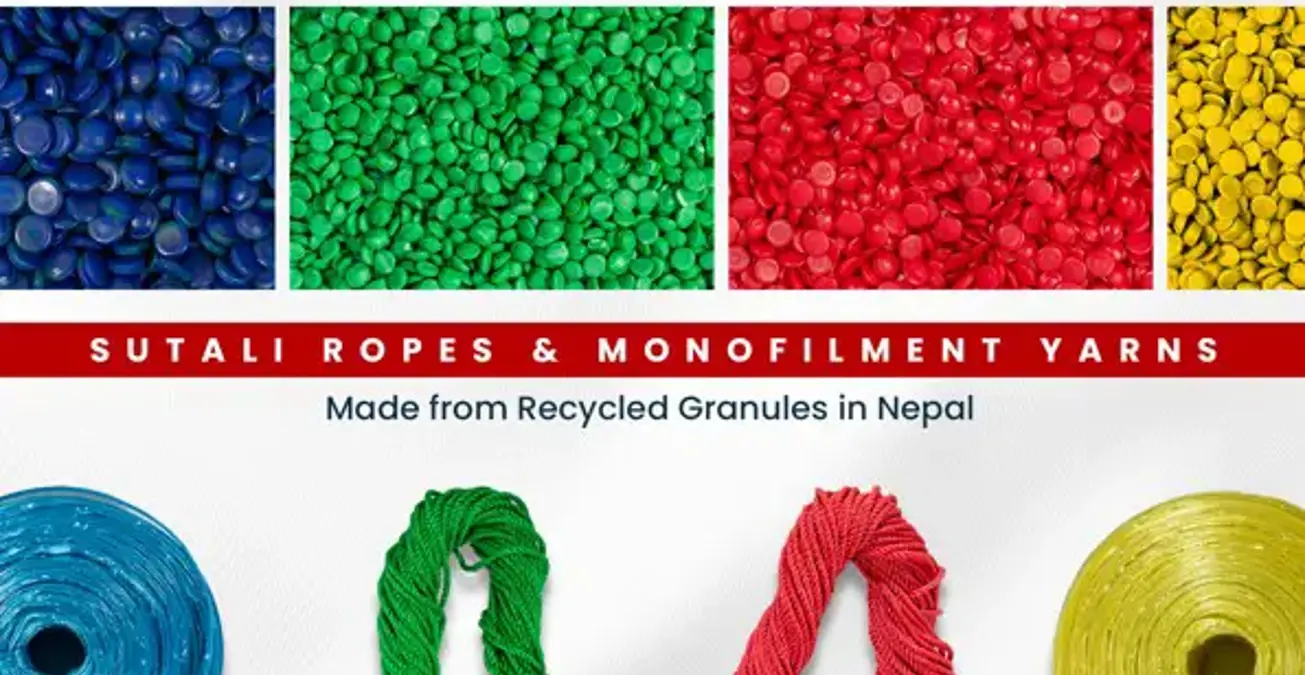Copyright ©. Powered by onetech®

In a world battling plastic waste, how can something discarded become something valuable—like ropes and yarn? At National Plastic Industries, the answer lies in innovation, sustainability, and advanced recycling methods.
From misprinted films to factory offcuts, plastic waste that would otherwise clog Nepal’s landfills is being transformed into high-quality Sutali ropes and monofilament yarn, both essential to agriculture, packaging, and manufacturing sectors.
Let’s explore how recycled plastic becomes a sustainable raw material for ropes and yarn in Nepal.
The process begins with collecting post-industrial plastic waste such as rejected packaging materials, plastic bags, offcuts, and misprinted films. These materials are sorted by type—mainly HDPE, LDPE, and PP—to ensure quality and consistency in the final product.
Sorted plastics are cleaned, shredded, and melted using high-temperature recycling machines. The result is recycled plastic granules—uniform pellets that serve as the raw material for manufacturing both Sutali ropes and monofilament yarn.
HDPE/LDPE granules → Used for Monofilament Yarn
PP granules → Used for Sutali Ropes
These granules offer consistency in melt flow index (MFI) and are available in various colors and grades.
In the monofilament process, melted HDPE/LDPE is extruded through fine dies to form single-filament yarns. These filaments are cooled, stretched, and spooled, resulting in abrasion-resistant yarns with high tensile strength.
Agricultural twines and nets
Fishing lines
Woven sacks and industrial fabrics
Brush bristles and plastic cords
Our yarn is available in denier sizes from 300D to 6000D, and can be customized by color, thickness, or packaging.
Sutali ropes are made by extruding recycled polypropylene (PP) into strands that are twisted into flexible, durable ropes. These ropes are lightweight yet strong, and well-suited for indoor and outdoor use.
Tying hay bales, sacks, or plants
Packaging and warehouse bundling
Retail, commercial, and household use
Our Sutali ropes come in a variety of diameters (1 mm to 6 mm) and vibrant color options including red, blue, green, and yellow. Custom roll lengths and packaging options are also available.
National Plastic Industries is committed to building a circular economy in Nepal. By using recycled materials in manufacturing:
We help reduce plastic waste and landfill dependency
We support Nepal’s green manufacturing goals
We offer cost-effective, eco-conscious solutions for B2B clients
These products meet ISO and local compliance standards, ensuring quality without compromising sustainability.
Looking for a reliable supplier of monofilament yarn or sutali ropes in Nepal? We offer full customization, competitive pricing, and timely delivery for your business needs.